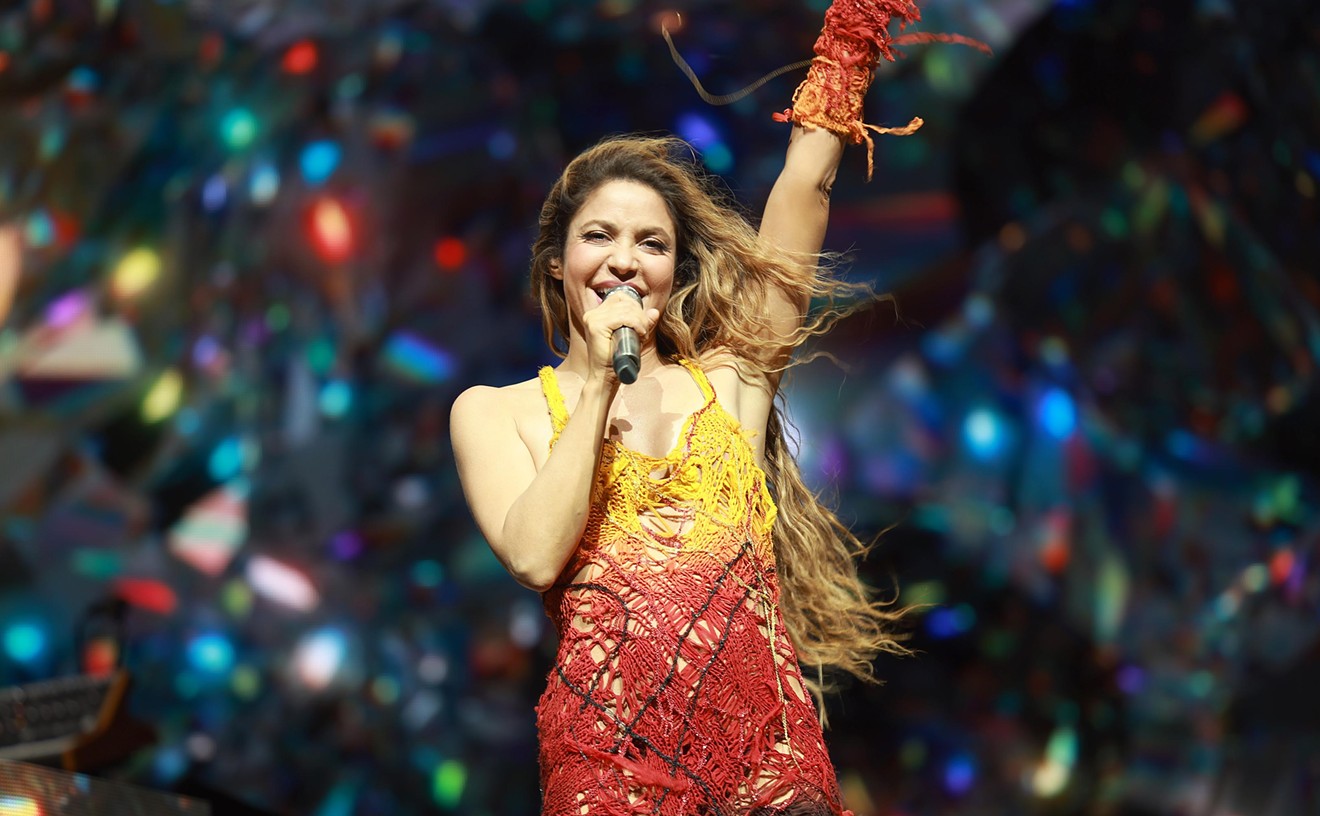Gibb is talking about the loud crappiness of modern-rock radio because one hallmark of the Cameras' records is the wall-of-sound quality Gibb inherited from legendary '60s pop producer Phil Spector, of whom the Cameras front man is a big fan. Spector's monolithic sound was built from the concept of several instruments playing the same thing at once. It is big but lacks the kind of definition that obsesses modern record makers; as heard on classic Spector records such as the Ronettes' "Be My Baby," it's more about scale than volume. Spector's stuff possesses an airiness that is in total contrast with the hypercompressed churn you get from Nickelback or Hinder.
Albums by the Hidden Cameras, whose fluid membership sometimes counts 10 or 11 players, have a similarly airy quality. On 2004's Mississauga Goddam—a play on words referencing both Gibb's suburban Toronto hometown and Nina Simone's "Mississippi Goddamn"—the music skips along on tempos that are consistently quicker than you'd expect, goosed by sawing strings and lots of hand percussion. "On that record we were doing a lot of things, in terms of the studio and the production, that would be similar [to what Spector did]," Gibb says. "We used an old, big tape machine and a reverb plate—all the same stuff that he would've used. But it wasn't all at the same time, so that's different."
Another difference: Gibb's lyrics, which even Ronnie Spector, that tough Spanish Harlem chick, might've blushed at had Phil commanded her to sing them. From 2003's The Smell of Our Own's "Golden Streams": "My golden bone meets the golden bun." This is the other idea that writers keep recycling about the Hidden Cameras: the titillating friction between Gibb's sexually explicit songwriting and his band's melodic indie pop. There's merit in that observation inasmuch as there's merit in observing how surprising it is that Justin Timberlake's songs with Timbaland aren't all about software. Think about it for a second, though, and the notion is a little offensive. What should music about gay sex sound like, if not the music the Hidden Cameras make? Should it be ugly instead of pretty? Rude instead of polite? Funny instead of serious?
Perhaps Gibb has grown tired of the observation himself, since on the Cameras' fine new album, Awoo (Arts and Crafts), he seriously holds back on the beautiful descriptions of anal sex. The new stuff emphasizes another type of friction in the band's music, the contrast between Gibb's deadpan delivery and his bandmates' exuberant playing. The songs on Awoo are some of the Cameras' loveliest yet. "Heaven Turns To," a midtempo ballad, shimmers with clean electric guitar strumming and a wistful oboe line, while the verses in opener "Death of a Tune" tremble in anticipation of the tune's jubilant chorus. Yet throughout Awoo Gibb sounds like he's reciting insurance-rate figures, which actually ends up giving the music the sort of over-the-top melancholy that is Morrissey's enduring gift to misfits the world over. As in much of Morrissey's stuff, the music's narrative is that of a man trapped by society—a sort of 21st-century update of Spector's trick, in which the producer's wall of sound represented the forces bearing down on the teenage singer's doomed romance.
That angle is even more pronounced in the Hidden Cameras' live show, where Gibb surrounds himself with costumes and props and go-go dancers. In February the front man is opening a show of his visual art at a gallery on New York's Lower East Side that includes "some rather large banners" he's made for the band's concerts. The show is stormy and hilarious, yet Gibb plays its center of calm, a prisoner of his own creation.
For his part, Gibb resists agreeing that his delivery is restrained in some way, but does allow that he's "too busy playing guitar and singing" to work up much of the excitement we've come to expect from front men of rock bands. "There's not a lot of breaks where I don't sing," he says. "A lot of times I'm singing, like, really a lot—there's lots of words to remember, you know? And it just requires concentration, because I'm not that great of a musician." Given his sure-handed control of the Hidden Cameras' raw yet ornate sound, that's likely just self-deprecation. But even if he isn't a great musician, Gibb is something far more compelling in this age of thoughtlessly proficient indie rock: an idea man.
The Hidden Cameras perform Thursday, November 23, at Gypsy Tea Room.










